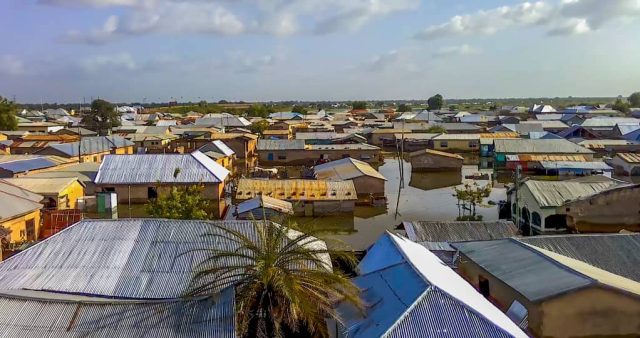Some communities in flood-affected areas in the Volta Region could face a spark of water-borne diseases as the enclaves holding the displaced people are yet to receive sanitation facilities.
A visit by the Ghana News Agency (GNA) to the Saint Kizito Senior High School at Mepe exposes visible unsanitary conditions as the people had resorted to open defecation.
Mr Ahorsu Amos Borlor, the Assembly member, of Mepe Electoral Area, appealed to the authorities to provide some mobile toilet facilities to ease the inconveniences the residents were facing.
Dr Richard Selormey, the Acting President of the Ghana Medical Association, said some cases of malaria, respiratory infections, and signs of water-borne diseases had been identified and, therefore, isolation centres had been created to provide general medical care.
In conjunction with its Volta Regional Chapter, the Association had mobilised doctors and other health professionals to the area to provide effective healthcare services, he said.
More than 26,000 people are displaced resulting from the spillage of the Akosombo Dam from September 15 till date, which had left several communities stranded, submerging farmlands and destroying livelihoods.
Ms Kate Agbenyo, an 18-year-old hairdresser apprentice, painted a gloomy picture about how she handles her menses and requested support for sanitary pads, potable water and food.
Dr Archibald Letsa, the Volta Regional Minister, said some mobile toilets had been procured and were being assembled for use to avert any disease outbreak.
He appealed to corporate Ghana, religious institutions and development partners for immediate support for the flood victims, who were in dire need of relief items, to complement government’s efforts.
State security agencies, NADMO, health professionals, the Ghana Water Company and Electricity Company, among others, are facilitating activities to safeguard the safety of victims.
















